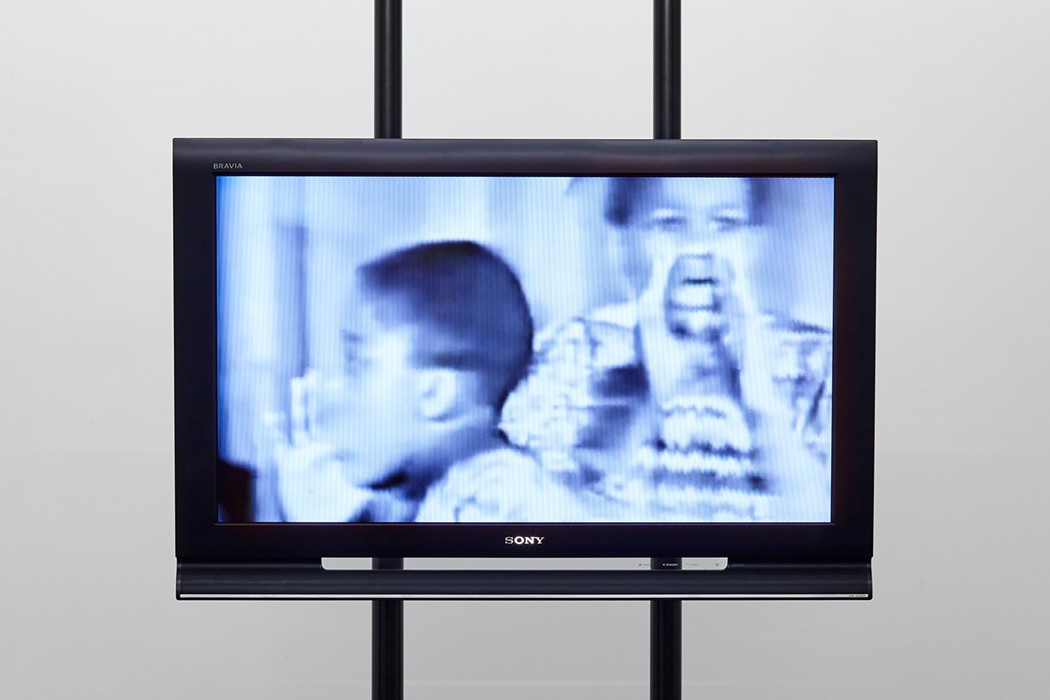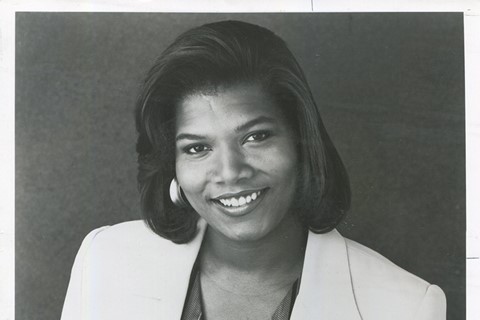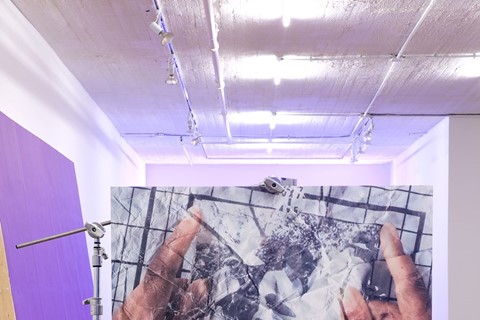Ahead of her first London solo exhibition at the ICA, we speak with Martine Syms, the talented Los Angeles-based artist making waves with her unique musings on historiography, semiotics and contemporary culture
It’s 9am in Los Angeles, and Martine Syms is making breakfast. Swirling, stirring and pouring sounds tinker down the telephone line. Syms says she's a chronic insomniac, which is her explanation for how she manages to get so much done. (It instantly reminds me of her S1:E1 installation at the New Museum Triennial last year, where the artist appears briefly in a video saying, "Oh my god, why was I up until 4am finishing that fucking website?") She laughs in response, "Yes, that's reality."
Her focus and steely work ethic is reflected in her generous artisic output. In fact, in the past 12 months alone Syms has presented a solo show at New York's Bridget Donahue and at Karma International in her hometown. She has also been selected for the Hammer Museum's Made in L.A. biennial – a showcase of works by a small group of progressive artists that are shaping the capital's creative outlook. If that wasn't enough, her art also features in a dynamic group show at the Whitechapel Gallery in London, entitled Electronic Superhighway.
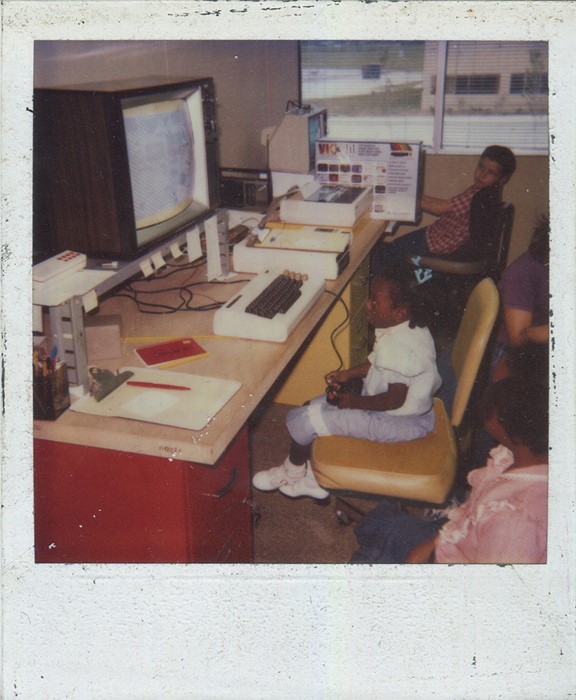
Shortly, Syms will cross the Atlantic to display her first one-woman exhibition in the UK, at the ICA. Fact & Trouble (a line she tapped up from Margo Jefferson’s memoir, Negro Land, by way of philosopher William James) will feature her extended, incomplete video poem – Lessons – episodic 30-second videos, conceived of as ads on black radical tradition. There will also be a sculptural installation at the Mall galleries with some of Sym’s C-stand photo object pieces. Her exhibitions often resemble deconstructed film sets – apt, as her background is in film. This arrangement of space works symbiotically with her overarching conceptual discussions: in a nutshell, Syms' practice deals with reality and representation, and the liminal space between those two facets.
Syms is a voracious reader and an accomplished writer, but most importantly, perhaps, she is a good listener. Her deep explorations of contemporary culture come together in her art; her own curiosity and experience to talk about widespread trends and situations, and how identity is presented and re-presented through the American media, entertainment and pop culture. Here, we catch up with the pioneering artist to discuss technology, artistic entrepreneurship and the importance of catchy phrases.
On reading against…
"The idea of reading against excites me. It’s a productive mode of thought. I never understood why anyone cared about the Kardashians until a friend, who’s Latina, told me that she liked them because they’re a family who look like hers. I was able to appreciate them differently. Pop culture or advertising doesn’t work perfectly. No one is watching and mindlessly accepting every part of the narrative or ideology. I look at plenty of shitty, stupid entertainment. I can find something in it that wasn’t intended for me."
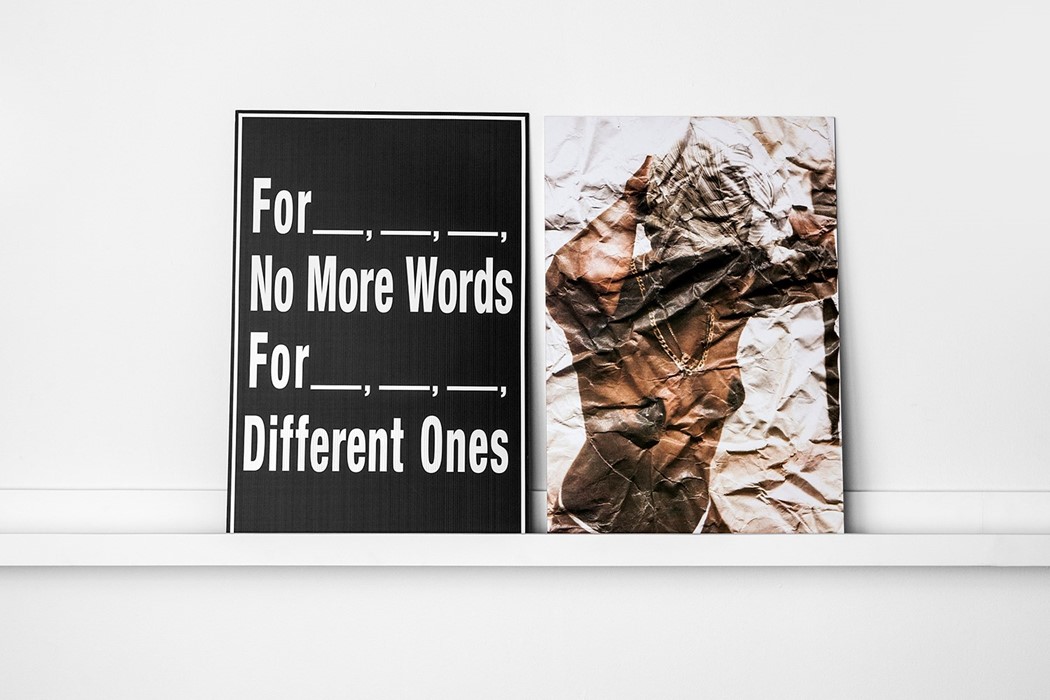
On growing up in Los Angeles…
"Los Angeles is an uncanny place to live. It has many science fiction qualities. For example, when I’m standing in line at the supermarket and I recognise the person in front of me, but I can’t figure out how I know them. Suddenly, I realise I saw them in some random commercial six years ago.
The city is ugly. The artist and writer Claire Evans recently said that 'wherever you look, there’s always something in your view ruining the frame. A beautiful vista is interrupted by a telephone pole. The blissful moment at the beach messed up by a dirty tampon.' This aesthetic influenced me. I also think about the way I move through the city. It’s a unique place, and depending on whether I’m walking or driving or taking the bus I have an extremely different encounter with it.
Los Angeles is also incredibly diverse. I appreciate the mix of cultures and I missed that while I was living in Chicago. I love Chicago, I lived there for seven years, but it’s more segregated and conservative. London is like LA in that regard. It’s a factory town here. I was just joking about how we’re all slaves to the industry… and I really don’t want my art to become a part of the entertainment complex."
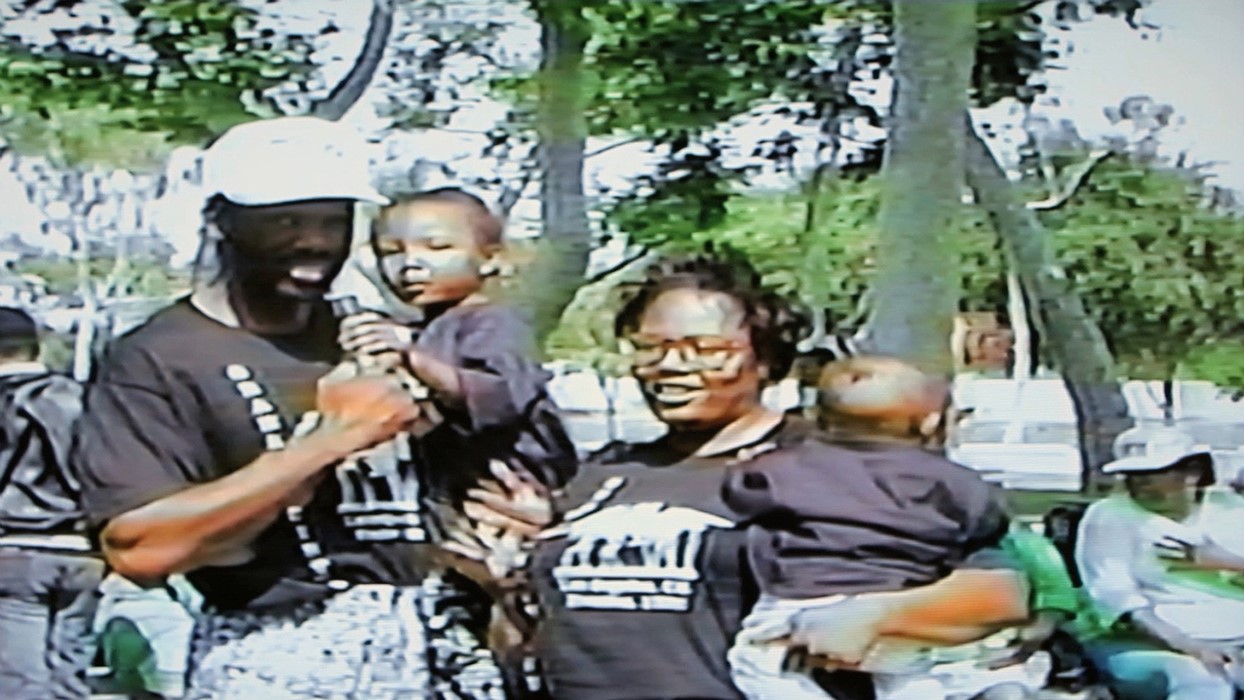
On activism...
"There’s a long, long, long history of using black women's bodies for spectacle, and that has only been exacerbated by networked images now. It’s by no means a new phenomenon. My work considers how that intersects with circulation and with technology, but in terms of politics, my art is not a form of activism. I think there are more effective ways of changing policy than making an art video."
On technology and speculative markets...
"More Than Some, Less Than Others XI is a still that I shot while making a video intro for a screening I organised about speculation and accelerationism. I wasn’t able to attend so I made a video writing my ideas on an iPad and then turning it towards the camera. The last sentence was, 'When entertainment frames the future it becomes a self-fulfilling prophecy.'
I’m obsessed with the way that speculation has been controlling culture for the last 100 years and how it’s changed everything. There’s this great quote I like to think about, about how value can be created, embedded, and embodied. Historically my body in this country is a commodity, even slaves were a form of technology, and neoliberalism turns everyone into a commodity so it’s an apt reference point."
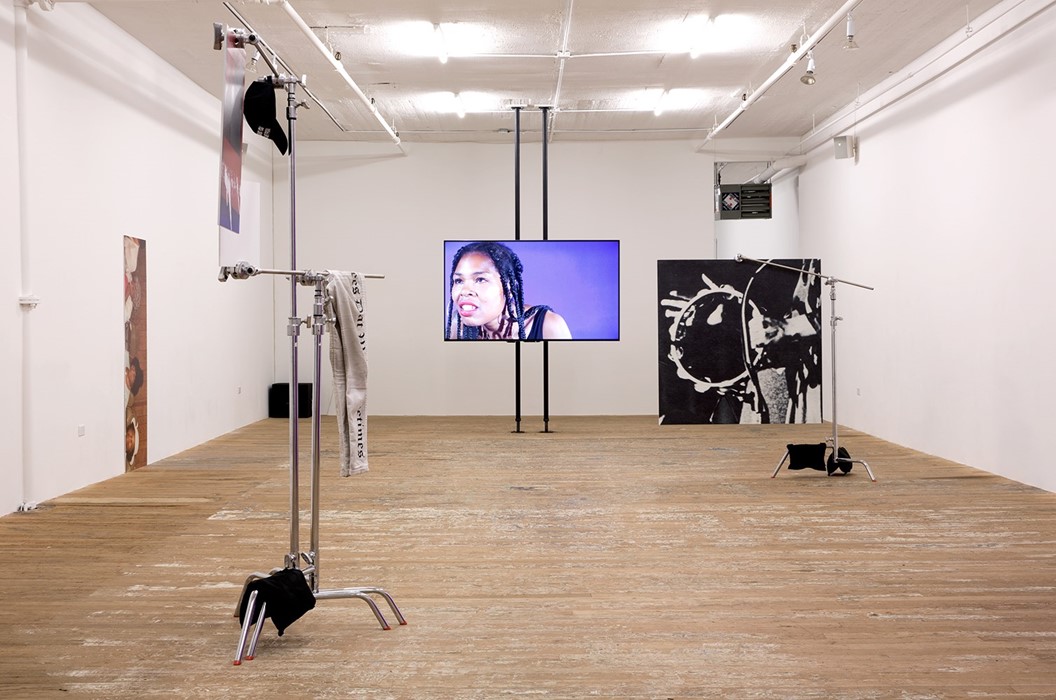
On how she feels about her term “conceptual entrepreneur”...
"When I came up with that term, I was explicitly referencing Sol Lewitt’s essay Notes on Conceptual Art in which he states that the 'idea becomes a machine that makes the art.' At the time, I was running Golden Age, a project space in Chicago, and people were always asking me. 'Is this part of your practice?' And I was like, no. I was cleaning cigarettes off the sidewalk; it was hard for me to glamourise it. I felt like a small business owner. Entrepreneurs create value; I wanted to create ideas that became machines for making value.
I was also really involved in the punk and hardcore scene in LA. Our Band Could Be Your Life is my favourite business book. I worked at a venue called The Smell and at Echo Park film Centre, a community centre where I rented equipment and taught film classes. Point three of the Black Panther Party’s Ten Point Program is about economic sustainability. I was also thinking about self-sufficiency and wanted to create institutions for the things I was interested in so that they could continue.
Then the tech spectre loomed all around me. That world took on the whole idea of entrepreneur and cast him (raced, gendered) as this new artist figure of the artist. I didn’t want to use it anymore, I didn’t want to be connected to start-up culture at all. Now I have a different relationship to the term. It sounds better than ‘independent contractor’. As artists we’re in a precarious economic situation still, working with museums and institutes, and my use of the term invokes the labour involved in being an artist."
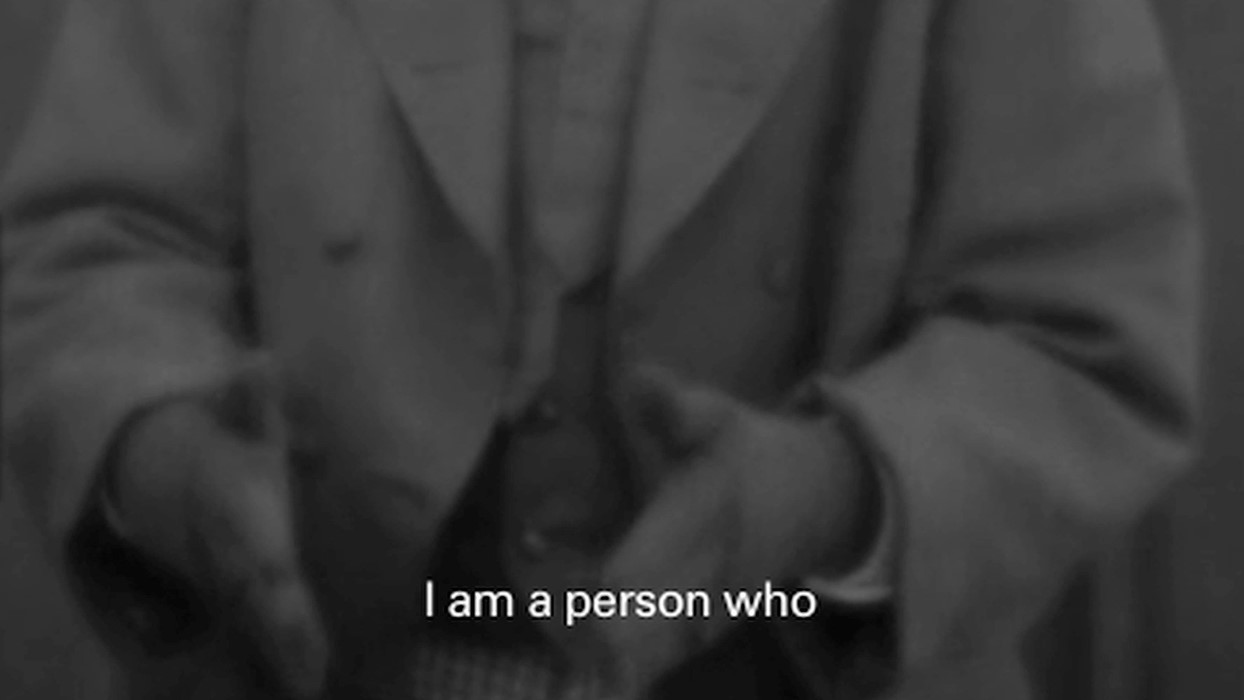
On phrases that get stuck in your head...
"For Vertical Elevated Oblique – my exhibition at Bridget Donahue, New York, I used the phrase 'everybody wanna be a black woman but nobody wanna be a black woman,' as a starting point. Doreen St. Felix tweeted it and put words to everything I was thinking about. It’s a reference to the Dave Chappelle show sketch ‘Ask a Black Man’ starring Paul Mooney. Mooney says that the black man is the most copied figure in society. I disagree. I think it’s the black woman.
I like to use statements that get stuck in your head. While I’m reading or writing I’ll have a phrase lodged into my brain. I can’t stop thinking it. I try to do that with my titles and text pieces. I was just watching the new [Spike Lee directed] Michael Jackson documentary Off the Wall. They interview legendary Philly producers Gamble and Huff about their songwriting process. Gamble and Huff said that when they wanted to write a hit song they’d just use phrases that people say in conversation. Yesterday I was walking with my boyfriend and both of us said ‘oh it’s so nice today.’ Then at the same time we both said, ‘It’s A Beautiful Morning’ in the way of the new Kanye song. It’s the same in songwriting, in poetry, in ads, in self-help. I like to bring a similar structure to my writing."
On exhibiting in London...
"I’m hyped. I’ve only been to London a few times and never really got the vibe. I was just there in February for ICA planning and it was the first time I hung out with locals, went around to all the different neighbourhoods – I got a lay of the land. There are so many projects that I’ve been following and am excited to be in conversation with while my show is up. I love NTS Radio, Donlon Books, Arcadia Missa. I’m thrilled to be a part of the ICA programming. They have an incredible history and it feels good to be a part of it."
Martine Syms: Fact & Trouble will be at the ICA from April 20 – Jun 19, 2016
